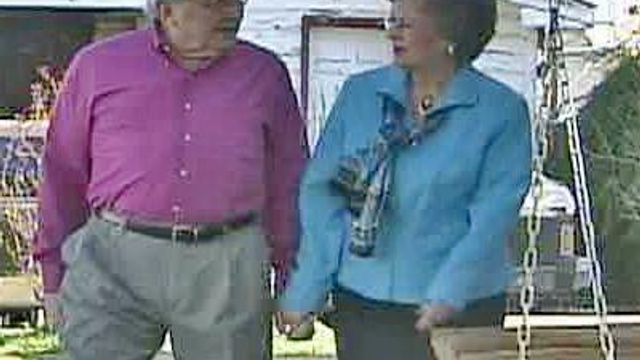Health Team
Man Finds Another Option to Treat Prostate Cancer
A procedure to treat prostate cancer helps reduce the common risks of other treatments for the disease.
Posted — UpdatedCLAYTON, N.C. — Duke University Heath Systems is offering a procedure to treat prostate cancer that helps reduce the common risks of other treatments for the disease.
Last summer, 74-year-old Robert Bryant Sr. learned he had early stage prostate cancer.
Doctors ruled out surgery because of his age, and he had bladder damage, so radiation was also out.
That left hormone therapies, “which were really traumatic for me,” he said, adding that it caused sexual dysfunction. “It became overwhelming. It brought on diabetes, which I never had.”
Bryant discovered another option at Duke Comprehensive Cancer Center with Dr. Thomas Polascik and focal cryosurgery.
Full cryosurgery sends freezing gas through carefully placed needles covering the whole prostate to kill tumors. It carries a slight risk of incontinence and the same risk of impotence as radiation or surgery to remove the gland.
MRI or other imaging is not reliable in finding early prostate tumors, so doctors depend on multiple needle biopsies. If the patient has a small, isolated tumor, focal cryosurgery can target only the cancerous half rather than freezing the whole gland.
The procedure risks missing cancer in the other half of the prostrate, however, so patients must undergo intensive screening for that later on.
“The only reason for doing this is to preserve a man's quality of life and, in particular, erectile function and continence,” Polascik said.
With partial freezing of the gland, 90 percent of men treated remain potent, while 10 percent report problems with urinary control.
Before finding out about focal cryosurgery, Bryant said he feared all options for treating his prostrate cancer were bad options.
“I certainly feel like I would have been just a spectator in life," he said. "Whereas, at this point, I'm encouraged that I will be a player in life."
• Credits
Copyright 2024 by Capitol Broadcasting Company. All rights reserved. This material may not be published, broadcast, rewritten or redistributed.





